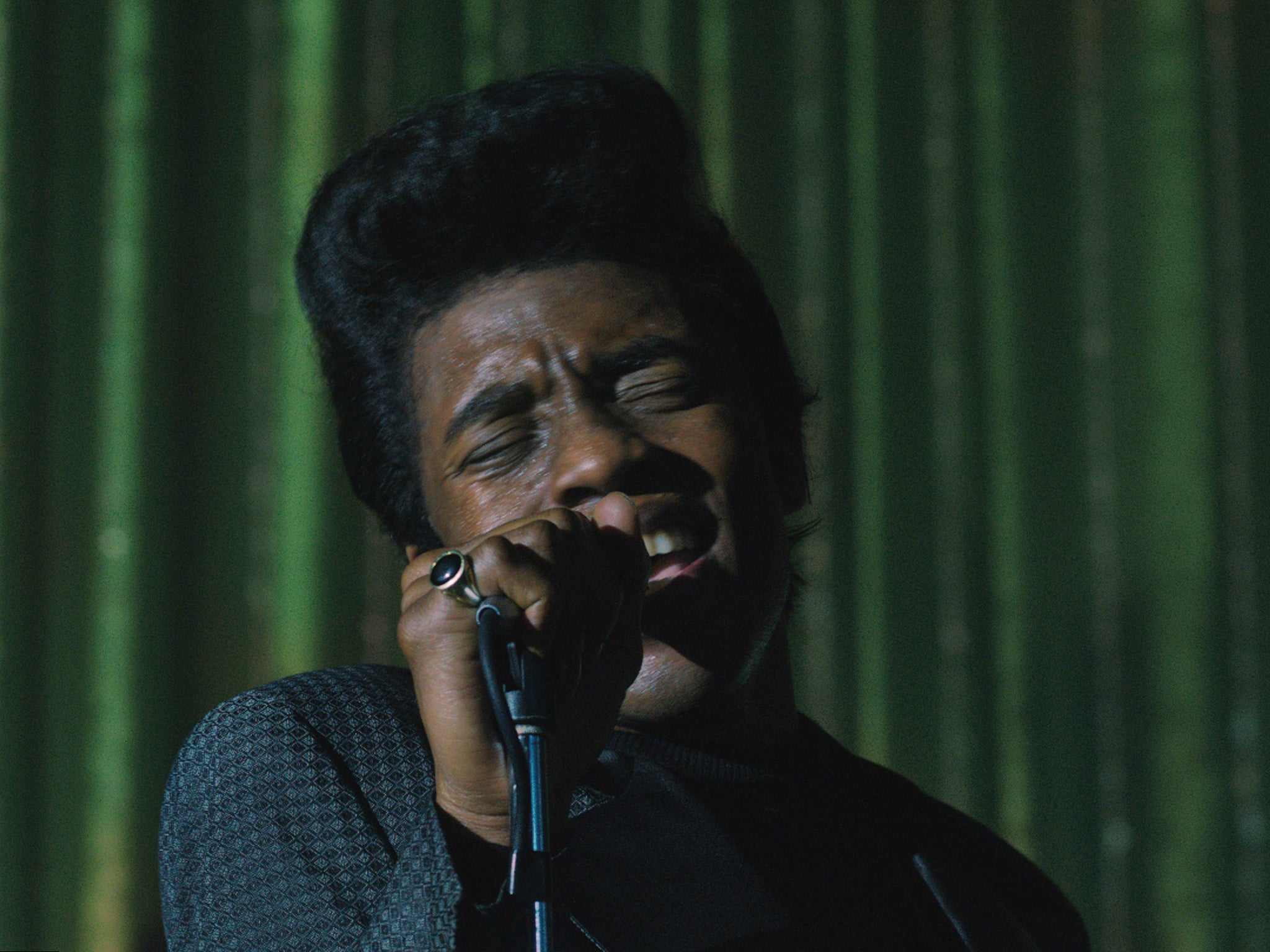Get On Up, film review: Here is a biopic that avoids the cliches
One of the most refreshing aspects of Get on Up is that Brown never apologises and isn’t prey to introspection

Your support helps us to tell the story
From reproductive rights to climate change to Big Tech, The Independent is on the ground when the story is developing. Whether it's investigating the financials of Elon Musk's pro-Trump PAC or producing our latest documentary, 'The A Word', which shines a light on the American women fighting for reproductive rights, we know how important it is to parse out the facts from the messaging.
At such a critical moment in US history, we need reporters on the ground. Your donation allows us to keep sending journalists to speak to both sides of the story.
The Independent is trusted by Americans across the entire political spectrum. And unlike many other quality news outlets, we choose not to lock Americans out of our reporting and analysis with paywalls. We believe quality journalism should be available to everyone, paid for by those who can afford it.
Your support makes all the difference.Too many biopics are dreary, chronological affairs which takes us in linear fashion through their subjects’ career.
Tate Taylor’s tremendously energetic film about James Brown, the “Godfather of Soul”, was produced by Mick Jagger’s company. It comes at its subject in inventive and oblique fashion. The screenplay, written by Jez Butterworth and his brother John-Henry Butterworth, starts with Brown toward the end of his career, throwing a tantrum because a stranger has used his bathroom. Cue guns, a siege and a police chase. From this abrasive beginning, the film leaps back and forth in time. We see Brown as an impoverished kid in the backwoods of South Carolina in the 1930s; as a delinquent teenager fresh out of prison and discovering gospel music; as the singer of the Famous Flames; and as the bouffanted, cape-wearing superstar he became.
Like its subject, the film never stays still. There are shots of Brown talking directly to camera and of him answering questions at press conferences. Chadwick Boseman gives a bravura performance as Brown. He has such energy and charisma that his character’s obnoxiousness and increasingly erratic behaviour never become an issue. The film shows him beating up his wife, terrorising the poor woman who had the temerity to use his bathroom, betraying his best friend and treating his long-suffering band with contempt. Even so, we can’t help but root for him. “You special, boy, you got the spirit in you,” he is told early on. The film makes it clear that he suffered from racism and extreme poverty, but doesn’t try to use that as an excuse or explanation for his own later excesses.
One of the most refreshing aspects of Get on Up is that Brown never apologises and isn’t prey to introspection. Instead, “the hardest working man in show business” (as he was nicknamed) channelled his energy into his music. The film tapers off in its final reel, ending on a conventional note – but not before it has done its best to capture its subject in all his manic and absurd glory.
Join our commenting forum
Join thought-provoking conversations, follow other Independent readers and see their replies
Comments